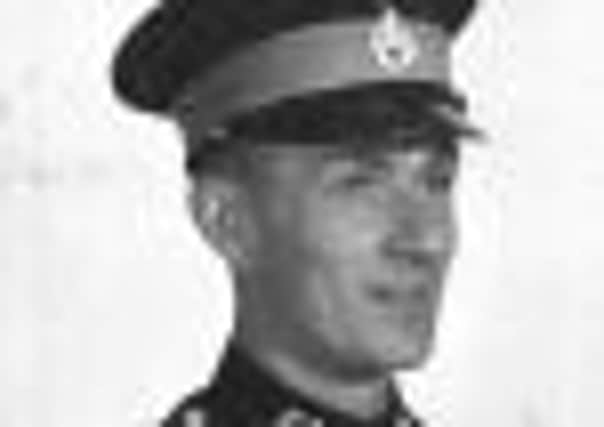William Day


He helped to protect Churchill during the Tehran Conference in 1943 involving Theodore Roosevelt, Joseph Stalin and Chiang Kai-shek. He also had responsibility for the Sword of Stalingrad, presented to Stalin at the conference.
Churchill doubled Mr Day’s pay while he was assigned to him, meeting the top up from his own purse, and he also gave him two cigars.
Advertisement
Hide AdAdvertisement
Hide AdMr Day, who was known as Bill or Happy to his family and friends, was born in Hull in 1917 and his childhood and strained family circumstances spanned the depression years. He was sent to Canada to live with an aunt for two years, before returning to attend school in Hull where he won a scholarship to complete his secondary education, and acquired a strong interest in wireless technology.
When he was 17, he tried to join the Royal Navy to and pursue his interest in wireless technology, but was told that he was too old, and was directed instead to the Royal Marines, which he joined in 1934.
He served in the Mediterranean and later was posted to the battleship HMS Rodney before returning to Deal, where he had trained, as a military training instructor which he was when the Second World War broke out. He became part of the early Commandos and also served as instructor at the Joint Services and Royal Marine commando schools at Achnacarry in Scotland and Towyn in Wales.
In 1942, he took part in the abortive Dieppe raid, with 40 Royal Marine Commando. By the time of D-Day he was a Company Sergeant Major leading the 250 strong 30 Assault Unit Commando, of Ian Fleming fame as part of a Royal Navy Intelligence Commando-led landing at Utah beach.
Advertisement
Hide AdAdvertisement
Hide AdWhen intelligence was received that Karl Doenitz, commander of the German navy was in Paris, Mr Day’s group was flown to the French capital and landed by parachute on Longchamps racecourse. The French Resistance then led them through Paris’s sewer system to capture Doenitz at the Rothschild mansion, only to find he had escaped moments before.
His unit lost half its force in action in Europe, and he returned to the UK to re-build it and receive special glider training for the crossing of the Rhine.
During that time he met his to-be-wife Marie, who was a non commissioned officer in the Auxiliary Territorial Service, and they married in 1945 after the war in her hometown of Bolton.
After crossing the Rhine into Germany, he took part in the capture of an experimental submarine at Kiel naval base. He finished the European war in Stettin, Poland after taking part in the liberation of the Nazi concentration camp at Fallingbostel (Stalag XI B), and was ready to be posted to the Far East with 30 Commando when the atom bomb was dropped. Instead he returned to training commandos at Achnacarry and Towyn. He was awarded a Gallantry Medal, Six Campaign and Long Service Medals, and the Distinguished Service Medal.
Advertisement
Hide AdAdvertisement
Hide AdWhen he left the Royal Marines in 1947, he returned to Bolton and applied to Rowntrees confectionery company in York (now Nestle) to be a salesman. At 30 he was said to be too old but instead was taken on as a trainee manager. He spent 10 years managing the distribution depot in Liverpool and was subsequently depot operations manager of all the UK depots, based in York.
In the 1970s, Rowntrees’ International Division took over Hoadleys of Australia and Mr Day moved to Melbourne in 1974 to reorganise the Australian distribution system, as a board director. He spent eight years there, finally acting as chairman of the Australian company.
Mr Day is survived by his wife of 67 years, two children, six grandchildren and a recently born great grandson, also named William.